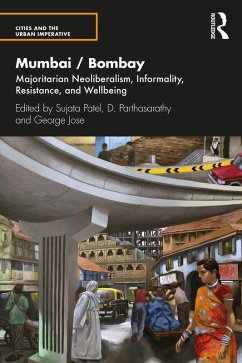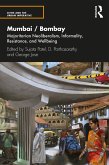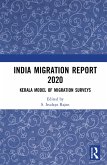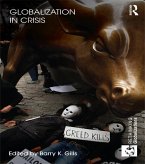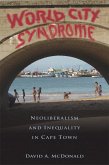Mumbai / Bombay (eBook, PDF)
Majoritarian Neoliberalism, Informality, Resistance, and Wellbeing
Redaktion: Patel, Sujata; Jose, George; Parthasarathy, D.
40,95 €
40,95 €
inkl. MwSt.
Sofort per Download lieferbar

20 °P sammeln
40,95 €
Als Download kaufen

40,95 €
inkl. MwSt.
Sofort per Download lieferbar

20 °P sammeln
Jetzt verschenken
Alle Infos zum eBook verschenken
40,95 €
inkl. MwSt.
Sofort per Download lieferbar
Alle Infos zum eBook verschenken

20 °P sammeln
Mumbai / Bombay (eBook, PDF)
Majoritarian Neoliberalism, Informality, Resistance, and Wellbeing
Redaktion: Patel, Sujata; Jose, George; Parthasarathy, D.
- Format: PDF
- Merkliste
- Auf die Merkliste
- Bewerten Bewerten
- Teilen
- Produkt teilen
- Produkterinnerung
- Produkterinnerung

Bitte loggen Sie sich zunächst in Ihr Kundenkonto ein oder registrieren Sie sich bei
bücher.de, um das eBook-Abo tolino select nutzen zu können.
Hier können Sie sich einloggen
Hier können Sie sich einloggen
Sie sind bereits eingeloggt. Klicken Sie auf 2. tolino select Abo, um fortzufahren.

Bitte loggen Sie sich zunächst in Ihr Kundenkonto ein oder registrieren Sie sich bei bücher.de, um das eBook-Abo tolino select nutzen zu können.
This book traces the various ways through which majoritarianism and neoliberal capitalist accumulation has reorganised Bombay or Mumbai in India, by exploring work and labour; health and education; spatial planning and infrastructural development; politics and identity; financialisation; land speculation; and deregulation and informality.
- Geräte: PC
- mit Kopierschutz
- eBook Hilfe
Andere Kunden interessierten sich auch für
![Mumbai / Bombay (eBook, ePUB) Mumbai / Bombay (eBook, ePUB)]() Mumbai / Bombay (eBook, ePUB)40,95 €
Mumbai / Bombay (eBook, ePUB)40,95 €![Colonialism and Foreign Ownership of Capital (Routledge Revivals) (eBook, PDF) Colonialism and Foreign Ownership of Capital (Routledge Revivals) (eBook, PDF)]() Bharat HazariColonialism and Foreign Ownership of Capital (Routledge Revivals) (eBook, PDF)38,95 €
Bharat HazariColonialism and Foreign Ownership of Capital (Routledge Revivals) (eBook, PDF)38,95 €![India Migration Report 2020 (eBook, PDF) India Migration Report 2020 (eBook, PDF)]() India Migration Report 2020 (eBook, PDF)45,95 €
India Migration Report 2020 (eBook, PDF)45,95 €![Globalization in Crisis (eBook, PDF) Globalization in Crisis (eBook, PDF)]() Globalization in Crisis (eBook, PDF)31,95 €
Globalization in Crisis (eBook, PDF)31,95 €![Colonialism and Foreign Ownership of Capital (Routledge Revivals) (eBook, ePUB) Colonialism and Foreign Ownership of Capital (Routledge Revivals) (eBook, ePUB)]() Bharat HazariColonialism and Foreign Ownership of Capital (Routledge Revivals) (eBook, ePUB)38,95 €
Bharat HazariColonialism and Foreign Ownership of Capital (Routledge Revivals) (eBook, ePUB)38,95 €![World City Syndrome (eBook, PDF) World City Syndrome (eBook, PDF)]() David A. McdonaldWorld City Syndrome (eBook, PDF)49,95 €
David A. McdonaldWorld City Syndrome (eBook, PDF)49,95 €![Employment and Citizenship in Britain and France (eBook, PDF) Employment and Citizenship in Britain and France (eBook, PDF)]() Employment and Citizenship in Britain and France (eBook, PDF)36,95 €
Employment and Citizenship in Britain and France (eBook, PDF)36,95 €-
-
-
This book traces the various ways through which majoritarianism and neoliberal capitalist accumulation has reorganised Bombay or Mumbai in India, by exploring work and labour; health and education; spatial planning and infrastructural development; politics and identity; financialisation; land speculation; and deregulation and informality.
Dieser Download kann aus rechtlichen Gründen nur mit Rechnungsadresse in A, B, BG, CY, CZ, D, DK, EW, E, FIN, F, GR, HR, H, IRL, I, LT, L, LR, M, NL, PL, P, R, S, SLO, SK ausgeliefert werden.
Produktdetails
- Produktdetails
- Verlag: Taylor & Francis eBooks
- Seitenzahl: 280
- Erscheinungstermin: 16. Juni 2022
- Englisch
- ISBN-13: 9781000594973
- Artikelnr.: 63905950
- Verlag: Taylor & Francis eBooks
- Seitenzahl: 280
- Erscheinungstermin: 16. Juni 2022
- Englisch
- ISBN-13: 9781000594973
- Artikelnr.: 63905950
- Herstellerkennzeichnung Die Herstellerinformationen sind derzeit nicht verfügbar.
Sujata Patel is Kerstin Hesselgren Visiting Professor, Department of Sociology, Umea University, Sweden (2021-2022). She has been Distinguished Professor, Savitribai Phule Pune University; National Fellow, Indian Institute of Advanced Study, Shimla, and a teacher of sociology at the Universities of Hyderabad, Pune, and SNDT Women's University. Her interests include modernity and social theory, history of sociology/social sciences, urbanisation and city-formation, social movements, gender construction, and caste and class formation in India with a historical sensibility based on perspectives from Marxism, feminism, spatial studies, and post-structuralism. She has authored, edited, and co-edited 14 books and 70 papers/ book chapters, and has served as editor of several series. She has been associated in various capacities with the International Sociological Association and has been its first Vice President for National Associations. She was also the President of Indian Sociological Society. D. Parthasarathy is Professor of Sociology, Department of Humanities and Social Sciences, Indian Institute of Technology, Bombay, India. He is also Associate Faculty at IIT Bombay's Centre for Urban Science and Engineering, the Centre for Policy Studies, and the Inter-disciplinary Program in Climate Studies. He has earlier worked or held visiting positions at the Australian National University, National University of Singapore, and Zentrum Moderner Orient, Berlin. He held the India Value Fund Chair Professorship at IIT Bombay and has been Head of the Department of Humanities and Social Sciences at IIT Bombay and Convener for the IDP in Climate Studies. He is the author of Collective Violence in a Provincial City (1997), and has co-edited "Cleavage, Connection and Conflict in Rural, Urban and Contemporary Asia" (2013). His research and teaching interests are in urban studies, law and governance, gender and development, climate studies, and disaster risk andvulnerability. He has worked with civil society organisations, NGOs, environmental activists, government agencies, and international organisations on issues related to urban disasters and risks, climate vulnerability and adaptation, environmental justice, and coastal transformation. He has carried out collaborative national and international research projects sponsored by ICSSR, UGC, Belmont Forum, International Science Council, Ministry of Earth Sciences, Ministry of Environment, Forests and Climate Change, UNDP, Belmont Forum, and the European Union. George Jose is Visiting Associate Professor of Anthropology, New York University Abu Dhabi, UAE. He researches metropolitan transformation in and of contemporary South Asia. His work explores the urban periphery as a site of culture and politics, urbanism in the global south, processes of work and consumption, and citizenship, rights, and marginalisation in the city. He has held research, teaching, and leadership positions in the academia and not-for-profit sectors. He was Dean of Jyoti Dalal School of Liberal Arts, NMIMS University, Mumbai; the inaugural Program Director for Asia Society India; Programme Executive with India Foundation for the Arts (IFA), Bengaluru; a Research Fellow at Forum Transregionale Studien, Berlin, and taught Sociology in Kishinchand Chellaram College, Mumbai, for several years.
List of Illustrations
Abbreviations
Contributors
Preface and Acknowledgements
Introduction: Pathways towards Majoritarian Neoliberalism in Mumbai
Sujata Patel, D. Parthasarathy, and George Jose
PART I
Work and Labour: Deregulation and Restructuring
1 Informality, Missing Markets, and Political Organisation: Case Study of
the Shiv Sena
Neeraj Hatekar
2 Gendered Peripheralisation of Work, Workers, and Workplace
Ritu Dewan
3 Living with Precariousness: Survival in Small Manufacturing Enterprises
Raghav Mehrotra and Maansi Parpiani
4 Neoliberalism and Majoritarian Politics: Hindutva and Restructuring the
Meat Business
Shireen Mirza
PART II
Infrastructure and Politics: Negotiation and Resistance
5 Infrastructure Projects and Sustainable Development
Sripad Motiram
6 Legislating the Urban in Vasai-Virar: Planning (in) the Periphery
George Jose
7 Socio-Spatial Embedding of Platform Mobilities: A Study on Taxi Driving
Tobias Kuttler
8 The Difficult Quest for Solidarity and Citizenship: Civility, Politics,
and Neoliberalism
D. Parthasarathy
PART III
Well-being and Reproduction of Life: Corporatisation and Privatisation
9 Health and Healthcare in the City: A Social History Perspective
Padma Prakash and Sangeeta Rege
10 Right Place, Right Time: Ambulances, Injury, and Trauma in Motion
Harris Solomon
11 The Good Muslim Student: Neoliberal Education and Islamic-English
Schools 210
Sameera Khan
12 Neoliberalism and Sustainability in the Art Ecosystem
Olga Kanzaki Sooudi
Glossary
Index
Abbreviations
Contributors
Preface and Acknowledgements
Introduction: Pathways towards Majoritarian Neoliberalism in Mumbai
Sujata Patel, D. Parthasarathy, and George Jose
PART I
Work and Labour: Deregulation and Restructuring
1 Informality, Missing Markets, and Political Organisation: Case Study of
the Shiv Sena
Neeraj Hatekar
2 Gendered Peripheralisation of Work, Workers, and Workplace
Ritu Dewan
3 Living with Precariousness: Survival in Small Manufacturing Enterprises
Raghav Mehrotra and Maansi Parpiani
4 Neoliberalism and Majoritarian Politics: Hindutva and Restructuring the
Meat Business
Shireen Mirza
PART II
Infrastructure and Politics: Negotiation and Resistance
5 Infrastructure Projects and Sustainable Development
Sripad Motiram
6 Legislating the Urban in Vasai-Virar: Planning (in) the Periphery
George Jose
7 Socio-Spatial Embedding of Platform Mobilities: A Study on Taxi Driving
Tobias Kuttler
8 The Difficult Quest for Solidarity and Citizenship: Civility, Politics,
and Neoliberalism
D. Parthasarathy
PART III
Well-being and Reproduction of Life: Corporatisation and Privatisation
9 Health and Healthcare in the City: A Social History Perspective
Padma Prakash and Sangeeta Rege
10 Right Place, Right Time: Ambulances, Injury, and Trauma in Motion
Harris Solomon
11 The Good Muslim Student: Neoliberal Education and Islamic-English
Schools 210
Sameera Khan
12 Neoliberalism and Sustainability in the Art Ecosystem
Olga Kanzaki Sooudi
Glossary
Index
List of Illustrations
Abbreviations
Contributors
Preface and Acknowledgements
Introduction: Pathways towards Majoritarian Neoliberalism in Mumbai
Sujata Patel, D. Parthasarathy, and George Jose
PART I
Work and Labour: Deregulation and Restructuring
1 Informality, Missing Markets, and Political Organisation: Case Study of
the Shiv Sena
Neeraj Hatekar
2 Gendered Peripheralisation of Work, Workers, and Workplace
Ritu Dewan
3 Living with Precariousness: Survival in Small Manufacturing Enterprises
Raghav Mehrotra and Maansi Parpiani
4 Neoliberalism and Majoritarian Politics: Hindutva and Restructuring the
Meat Business
Shireen Mirza
PART II
Infrastructure and Politics: Negotiation and Resistance
5 Infrastructure Projects and Sustainable Development
Sripad Motiram
6 Legislating the Urban in Vasai-Virar: Planning (in) the Periphery
George Jose
7 Socio-Spatial Embedding of Platform Mobilities: A Study on Taxi Driving
Tobias Kuttler
8 The Difficult Quest for Solidarity and Citizenship: Civility, Politics,
and Neoliberalism
D. Parthasarathy
PART III
Well-being and Reproduction of Life: Corporatisation and Privatisation
9 Health and Healthcare in the City: A Social History Perspective
Padma Prakash and Sangeeta Rege
10 Right Place, Right Time: Ambulances, Injury, and Trauma in Motion
Harris Solomon
11 The Good Muslim Student: Neoliberal Education and Islamic-English
Schools 210
Sameera Khan
12 Neoliberalism and Sustainability in the Art Ecosystem
Olga Kanzaki Sooudi
Glossary
Index
Abbreviations
Contributors
Preface and Acknowledgements
Introduction: Pathways towards Majoritarian Neoliberalism in Mumbai
Sujata Patel, D. Parthasarathy, and George Jose
PART I
Work and Labour: Deregulation and Restructuring
1 Informality, Missing Markets, and Political Organisation: Case Study of
the Shiv Sena
Neeraj Hatekar
2 Gendered Peripheralisation of Work, Workers, and Workplace
Ritu Dewan
3 Living with Precariousness: Survival in Small Manufacturing Enterprises
Raghav Mehrotra and Maansi Parpiani
4 Neoliberalism and Majoritarian Politics: Hindutva and Restructuring the
Meat Business
Shireen Mirza
PART II
Infrastructure and Politics: Negotiation and Resistance
5 Infrastructure Projects and Sustainable Development
Sripad Motiram
6 Legislating the Urban in Vasai-Virar: Planning (in) the Periphery
George Jose
7 Socio-Spatial Embedding of Platform Mobilities: A Study on Taxi Driving
Tobias Kuttler
8 The Difficult Quest for Solidarity and Citizenship: Civility, Politics,
and Neoliberalism
D. Parthasarathy
PART III
Well-being and Reproduction of Life: Corporatisation and Privatisation
9 Health and Healthcare in the City: A Social History Perspective
Padma Prakash and Sangeeta Rege
10 Right Place, Right Time: Ambulances, Injury, and Trauma in Motion
Harris Solomon
11 The Good Muslim Student: Neoliberal Education and Islamic-English
Schools 210
Sameera Khan
12 Neoliberalism and Sustainability in the Art Ecosystem
Olga Kanzaki Sooudi
Glossary
Index
